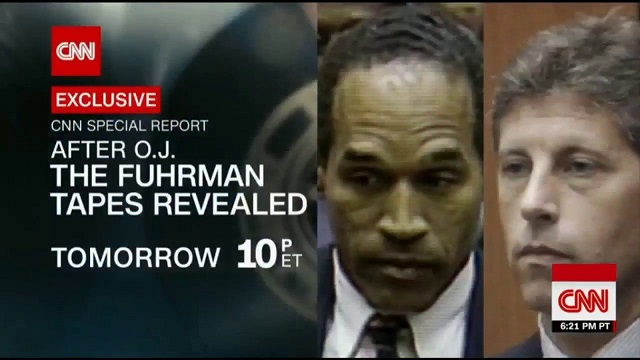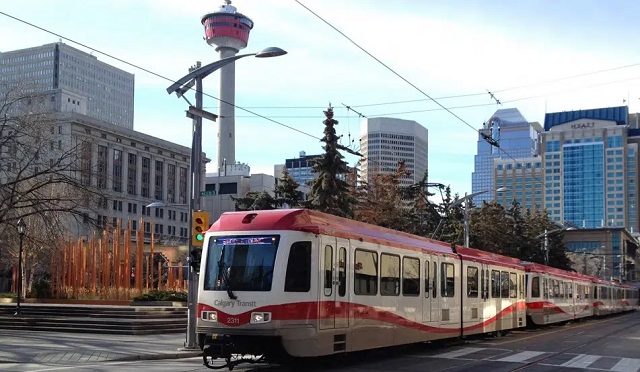Alberta
The electricity price cap in Alberta is gone. What now?


How the electricity price cap removal will affect Alberta utility bills (Photo by Helloquence on Unsplash)
Many Albertans have been reading the news about higher regulated electricity rates in December, after the price cap on energy rates was scrapped by the province. Even though this was announced by the Government of Alberta in late October, as part of the new budget, people only started to hear more about it on November 30. That was when the regulated energy providers announced their new power rates; this time, without a cap on prices.
The program was created by the NDP government in 2017 to cap energy rates for residential and small business consumers. Regulated rate (RRO) consumers wouldn’t pay more than 6.8 cents per kWh, meaning that any costs above that threshold were paid by the province. The main goal behind the cap was to protect consumers from rate spikes and, consequently, financial uncertainty.
In order to predict how your energy bills (and your wallet) could be impacted by this change, we need to take a look at historical prices, future market trends and what prices would’ve been this past year without the cap.
How the 6.8 cents/kWh price cap worked
Regulated electricity rates in Alberta change every month. Although the prices need to be approved by the Alberta Utilities Commission (AUC), they can be affected by multiple factors, including politics, natural disasters, economic reasons and more.
In the past 10 years, electricity rates in Alberta went as high as 15.06 cents/kWh and as low as 2.88 cents/kWh. The cap provided protection for Albertans as the government subsidized any prices above 6.8 cents/kWh.
The effects of the electricity price cap in Calgary in 2019
According to the Utilities Consumer Advocate (UCA), regulated electricity rates in the Calgary area (ENMAX) went above the 6.8 cents/kWh during most months of 2019, except for March, April, May and June.
- January: 7.727 cents/kWh
- February: 7.009 cents/kWh
- March: 5.914 cents/kWh
- April: 6.067 cents/kWh
- May: 6.390 cents/kWh
- June: 6.391 cents/kWh
- July: 8.434 cents/kWh
- August: 8.805 cents/kWh
- September: 7.590 cents/kWh
- October: 6.736 cents/kWh*
- November: 7.399 cents/kWh
- December: 7.320 cents/kWh
*According to the UCA, prices still reached the price cap in October, although they were officially 6.736 cents/kWh.
This means the average price would’ve been approximately 7.15 cents/kWh, which makes quite a difference in energy bill terms, considering that the average household in Canada consumes around 1,000 kWh per month. After an entire year of high electricity rates, this difference looks even larger.
The effects of the electricity price cap in Edmonton in 2019
In the Edmonton region (EPCOR), the difference between what consumers paid and what they would’ve paid without the cap is even more noticeable. According to the UCA, regulated prices went above the 6.8 cents threshold in all months except for March.
Without the cap, the average price per kWh in the Edmonton area in 2019 would’ve been 7.84 cents/kWh.
- January: 7.733 cents/kWh
- February: 7.189 cents/kWh
- March: 5.991 cents/kWh
- April: 6.981 cents/kWh
- May: 6.990 cents/kWh
- June: 7.231 cents/kWh
- July: 9.578 cents/kWh
- August: 10.191 cents/kWh
- September: 8.2 cents/kWh
- October: 7.342 cents/kWh
- November: 8.63 cents/kWh
- December: 8.069 cents/kWh
Are my electricity bills going to increase in the months ahead?
Now that the price cap is gone, many households and small businesses are concerned about facing higher utility costs in the months ahead.
Power prices reached historically low averages in 2017, but the average rate in Alberta was 7.3 cents/kWh for the 2002-2018 period, which is considerably above the price cap, especially in cents/kWh terms.
The future of electricity prices is still unclear. Consumers will have to wait and see whether rates will go up or down. We can expect to see RRO prices fluctuate slightly more now that they are free to go above the 6.8 cents/kWh threshold, as it happened in December and for most of the time in 2019.
Alberta
Coutts Three verdict: A warning to protestors who act as liaison with police
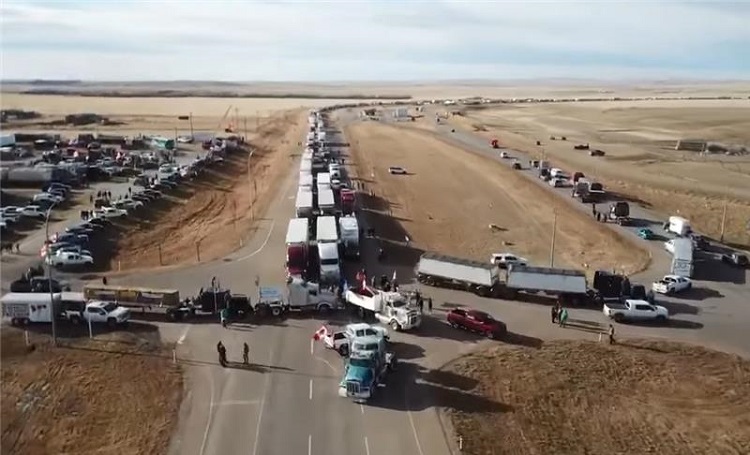
From the Frontier Centre for Public Policy
By Ray McGinnis
During the trial numbers of RCMP officers conceded that the Coutts Three were helpful in their interactions with the law. As well, there didn’t seem to be any truth to the suggestion that Van Huigenbos, Van Herk and Janzen were leaders of the protest.
Twelve jurors have found the Coutts Three guilty of mischief over $5,000 at a courthouse in Lethbridge, Alberta. Marco Van Huigenbois, Alex Van Herk and George Janzen will appear again in court on July 22 for sentencing.
Van Huigenbois, Van Herk and Janzen were each protesting at the Coutts Blockade in 2022. A blockade of Alberta Highway 4 began on January 29, 2022, blocking traffic, on and off, on Alberta Highway 4 near the Coutts-Sweetgrass Canada-USA border crossing. The protests were in support of the Freedom Convoy protests in Ottawa.
Protests began due to the vaccine mandates for truckers entering Canada, and lockdowns that bankrupted 120,000 small businesses. Government edicts were purportedly for “public health” to stop the spread of the C-19 virus. Yet the CDC’s Dr. Rachel Wallensky admitted on CNN in August 2021 the vaccine did not prevent infection or stop transmission.
By February 2022, a US court forced Pfizer to release its “Cumulative Analysis of Post-Authorization Adverse Event Reports” revealing the company knew by the end of February, 2021, that 1,223 people had a “case outcome” of “fatal” as a result of taking the companies’ vaccine.
On the day of February 14, 2022, the three men spoke to Coutts protesters after a cache of weapons had been displayed by the RCMP. These were in connection with the arrest of the Coutts Four. Van Huigenbos and others persuaded the protesters to leave Coutts, which they did by February 15, 2022.
During the trial numbers of RCMP officers conceded that the Coutts Three were helpful in their interactions with the law. As well, there didn’t seem to be any truth to the suggestion that Van Huigenbos, Van Herk and Janzen were leaders of the protest.
RCMP officer Greg Tulloch testified that there were a number of “factions” within the larger protest group. These factions had strong disagreements about how to proceed with the protest. The Crown contended the Coutts Three were the leaders of the protest.
During his testimony, Tulloch recalled how Van Huigenbos and Janzen assisted him in getting past the “vehicle blockade to enter Coutts at a time during the protest when access to Coutts from the north via the AB-4 highway was blocked.” Tulloch also testified that Janzen and Van Huigenbos helped with handling RCMP negotiations with the protesters. Tulloch gave credit to these two “being able to help move vehicles at times to open lanes on the AB-4 highway to facilitate the flow of traffic in both directions.”
During cross examination by George Janzen’s lawyer, Alan Honner, Tulloch stated that he noticed two of the defendants assisting RCMP with reopening the highway in both directions. Honner said in summary, “[Marco Van Huigenbos and George Janzen] didn’t close the road, they opened it.”
Mark Wielgosz, an RCMP officer for over twenty years, worked as a liaison between law enforcement and protesters at the Coutts blockade. Taking the stand, he concurred that there was sharp disagreement among the Coutts protesters and the path forward with their demonstration. Rebel News video clips “submitted by both the Crown and defence teams captured these disagreements as demonstrators congregated in the Smuggler’s Saloon, a location where many of the protesters met to discuss and debate their demonstration.” Wielgosz made several attempts to name the leaders of the protest in his role as a RCMP liaison with the protesters, but was unsuccessful.”
However, the Crown maintained that the protest unlawfully obstructed people’s access to property on Highway 4.
Canada’s Criminal Code defines mischief as follows in Section 430:
Every one commits mischief who willfully
(a) destroys or damages property;
(b) renders property dangerous, useless, inoperative or ineffective;
(c) obstructs, interrupts or interferes with the lawful use, enjoyment or operation of property; or
(d) obstructs, interrupts or interferes with any person in the lawful use, enjoyment or operation of property.
Robert Kraychik reported that “RCMP Superintendent Gordon Corbett…cried (no comment on the sincerity of this emoting) while testifying about a female RCMP officer that was startled by the movement of a tractor with a large blade during the Coutts blockade/protest.” This was the climax of the trial. A tractor moving some distance away from an officer in rural Alberta, with blades. The shock of it all.
No evidence was presented in the trial that Van Huigenbos, Van Herk and Janzen destroyed or damaged property. Officers testified they couldn’t identify who the protest leaders were. They testified the defendants assisted with opening traffic lanes, and winding down the protest.
By volunteering to liaise with the RCMP, the Crown depicted the Coutts Three as the protest leaders. Who will choose to volunteer at any future peaceful, non-violent, protest to act as a liaison with the policing authorities? Knowing of the verdict handed down on April 16, 2024, in Lethbridge?
Ray McGinnis is a Senior Fellow with the Frontier Centre for Public Policy. His forthcoming book is Unjustified: The Emergencies Act and the Inquiry that Got It Wrong.
Alberta
Maxime Bernier says it’s ‘astounding’ Alberta is ‘pushing’ COVID boosters, tells Danielle Smith to stop it

From LifeSiteNews
The People’s Party of Canada leader tells the Alberta government: ‘It’s over! Get over it!’
People’s Party of Canada (PPC) leader Maxime Bernier said Alberta Premier Danielle Smith should tell provincial health bureaucrats to “back off” and stop “pushing” the mRNA COVID boosters on “anyone,” considering a recent announcement from health officials recommending yet more COVID shots.
“I find it astounding that Alberta public health bureaucrats are still pushing the mRNA boosters on anyone, and especially on children who have never been at risk, almost two years after almost all other pandemic measures have been ended,” Bernier told LifeSiteNews.
“Danielle Smith’s government should tell its bureaucrats to back off and stop stupidly feeding a needless sense of fear surrounding the virus that lingers among certain groups of society. It’s over! Get over it!”
Earlier this week, officials from Alberta Health Services (AHS), whose chief medical officer throughout the COVID crisis, Dr. Deena Hinshaw, was fired by Smith in 2022, updated its COVID booster recommendations to every “three months” starting at babies only six months old.
“Starting April 15, 2024, select groups of Albertans at high risk of severe outcomes from COVID-19 will be eligible for an additional dose,” the AHS noted on its website.
AHS health officials still assert that all “vaccines are safe, effective and save lives,” and that one can get a COVID shot at the same time as a flu vaccine.
On April 16, Bernier commented on the AHS’s new COVID jab guideline changes on X, in which he asked, “What’s going on in Alberta with their “conservative” government?
Bernier, who was a firm opponent of both the COVID shots and mandates, told LifeSiteNews that AHS’s recommendations are puzzling, given “more and more scientific evidence is emerging of dangerous side effects when injecting from these experimental substances.”
“Even though these are only recommendations, and nothing is mandated, this ‘guidance’ by government agencies influences people’s decisions,” Bernier said.
AHS claims that the booster shots “are anticipated to provide a good immune response against currently circulating strains.”
Those under 18 still need written or verbal consent from their parents to get the shot.
AHS is recommending booster jabs for seniors, healthcare workers as well as those with underlying medical conditions. They also recommend that First Nations people and “members of racialized and other equity-denied communities,” as well as pregnant women get the shots as well.
The COVID shots were heavily promoted by the federal government as well as all provincial governments in Canada, with the Alberta government under former Premier Jason Kenney being no exception.
The mRNA shots themselves have been linked to a multitude of negative and often severe side effects in children.
Danielle Smith took over from Kenney as leader of the United Conservative Party (UCP) on October 11, 2022, after winning the leadership. Kenney was ousted due to low approval ratings and for reneging on promises not to lock Alberta down as well as enacting a vaccine passport. Smith was opposed to COVID jab mandates.
Bernier: It’s ‘deplorable’ some provinces still mandate COVID shot for Heathcare workers
While Alberta does not mandate the COVID shots for healthcare workers anymore, British Columbia still does as well as some health regions in Ontario, a fact that Bernier called “deplorable.”
“I find it deplorable that nurses, doctors and other healthcare workers in B.C. and Ontario still have to be vaccinated to work in hospitals and that thousands of them have not been reintegrated,” Bernier told LifeSiteNews.
“The authoritarian covid measures adopted by all governments have been traumatic enough for millions of Canadians. All of them should be lifted.”
Last year, LifeSiteNews reported on how the details of the Canadian federal government’s COVID-19 vaccine contract with Pfizer for millions of doses of the mRNA-based experimental shots were recently disclosed after being hidden for over three years.
The contract with Pfizer shows the government agreed to accept the unknown long-term safety and efficacy of the shots. The details of the Pfizer contract do not disclose how much the government spent on the jabs.
A bill introduced by Conservative Party leader Pierre Poilievre that would have given Canadians back their “bodily autonomy” by banning future jab mandates was voted down last year after Trudeau’s Liberals and other parties rejected it.
Adverse effects from the first round of COVID shots have resulted in a growing number of Canadians filing for financial compensation over injuries from the jabs via the federal Vaccine Injury Program (VISP).
VISP has already paid well over $11 million to those injured by COVID injections.
Earlier this year, LifeSiteNews reported on how officials from Health Canada have admitted that there is “residual plasmid DNA” in the COVID shots after a Conservative MP asked the agency through an official information request if the DNA fragments were in the shots.
As for Bernier, earlier this month he called out Poilievre for dodging a question regarding Canada’s participation in the United Nations’ pro-abortion Paris Climate Agreement.
Throughout most of the COVID crisis, Canadians from coast to coast were faced with COVID mandates, including jab dictates, put in place by both the provincial and federal governments.
After much pushback, thanks to the Freedom Convoy, most provincial mandates were eliminated by the summer of 2022.
There are currently multiple ongoing class-action lawsuits filed by Canadians adversely affected by COVID mandates.
-

 Economy2 days ago
Economy2 days agoExtreme Weather and Climate Change
-

 International2 days ago
International2 days agoTelegram founder tells Tucker Carlson that US intel agents tried to spy on user messages
-
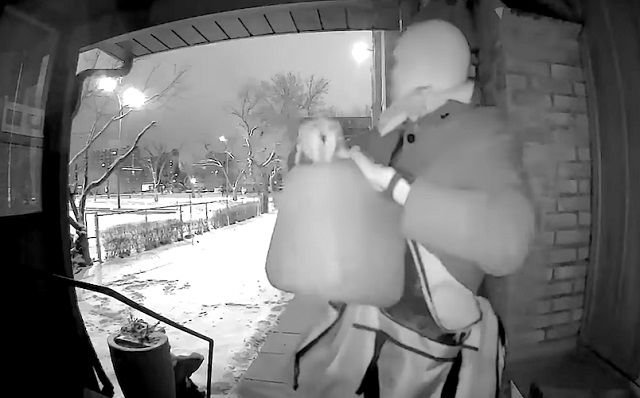
 Crime1 day ago
Crime1 day agoCanadian receives one-year jail sentence, lifetime firearms ban for setting church on fire
-
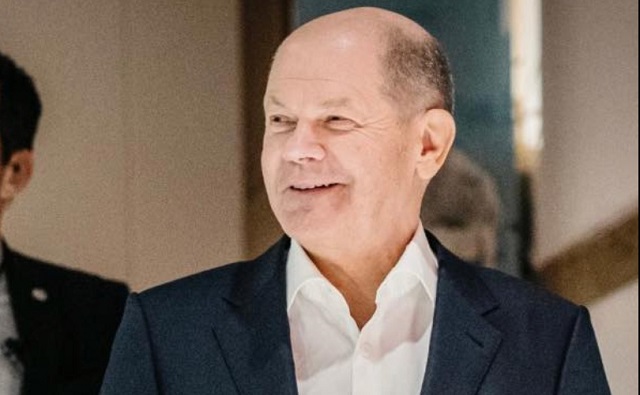
 International1 day ago
International1 day agoGerman parliament passes law allowing minors to change their legal gender once a year
-

 Business2 days ago
Business2 days agoNew capital gains hike won’t work as claimed but will harm the economy
-

 Bruce Dowbiggin2 days ago
Bruce Dowbiggin2 days agoWhy Are Canadian Mayors So Far Left And Out Of Touch?
-

 Justice2 days ago
Justice2 days agoOntario Court of Justice says participants must state their ‘preferred pronouns’ during introduction
-

 Business2 days ago
Business2 days agoTrudeau gov’t pledges $42 million to the CBC to promote ‘independent journalism’

